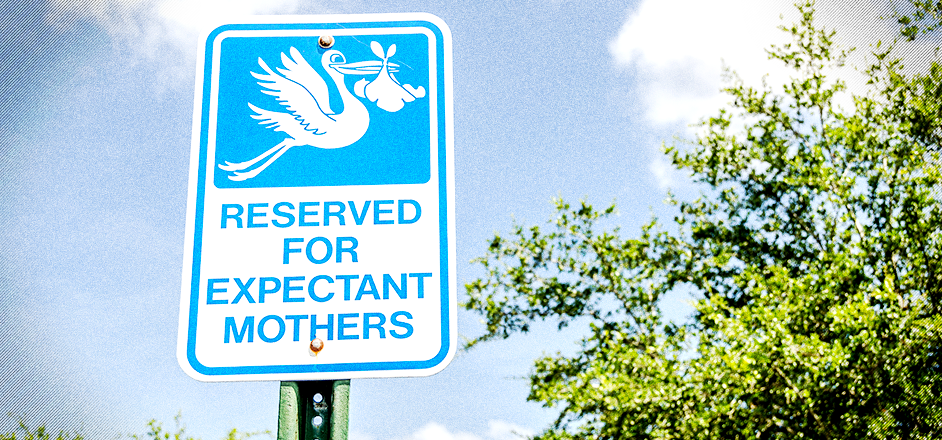Sam and her family are starving. They’ve been waiting for too long to be seated at some hip brunch spot, but they make no complaints, because they can see salvation ahead: they’re next in line, and a table just opened up.
Then, a pregnant woman walks in, and she’s immediately seated in the table Sam’s family had been anxiously eyeing. When Sam’s parents hangrily demand answers, they’re told it’s company policy: pregnant women get seated before all other patrons.
Of course, this special treatment of moms-to-be isn’t exclusive to one restaurant — expectant mothers get priority parking spaces, entitlement to seats on crowded buses, subways and airplanes, many have even argued for pregnancy to be legally regarded as a disability, and covered under the Americans with Disabilities Act.
Our societal infatuation with pregnancy and childbearing leads us to treat pregnant women like the sun shines out of their ass. Now that women in western society are considered man’s equal just about everywhere else, maybe it’s time we stop worshipping the women who choose to poop out a child.
Changing attitudes toward pregnancy are already raising concerns that feminism has gone too far.
For example, in an article entitled “Did Feminism Destroy Common Courtesy Toward Pregnant Women?,” the author demands answers for why strangers won’t sacrifice their seat whenever she steps onto the subway.
“Was it because millennial men are being raised to believe women are equal and don't require special treatment?” she asks. “Or does everyone just have their heads up their butts so much that they literally don't see the world or those in need around them? Or do they just choose not to see or to care? Has the feminist pendulum swung too far in the other direction?”
In the piece, the author begins to tap “able-bodied” subway riders on the shoulder until they acknowledge her, and then asks them outright to give up their seat. They would always oblige, leading her to assume they were simply oblivious of her pregnant status.
And again, the narrative of pregnancy as a disability appears. More likely than they didn’t notice her protruding belly is that they simply don’t distinguish themselves as “able-bodied” and a pregnant woman as “incapacitated.” Pregnancy is a condition one (usually) has by choice, and a disability is often something a person must involuntarily live with forever.
The strangers on the subway didn’t get her pregnant. Why should they be expected to sacrifice their comfort for someone who chose to incubate a tiny human in their abdomen? They have no obligation to inconvenience themselves for the decisions of others.
The sense of entitlement likely stems from an illusion of pregnant women’s selflessness. “How self-sacrificing they must be, to commit their bodies to nine months of discomfort to bring new life into this world.”
Quite the opposite, carrying a child isn’t selfless at all. There are countless lonely children around the world that could be adopted, but instead of taking care of the kids who are already here, many people would rather give birth to a hybrid of themselves and their partner.
Beyond that, they’re entirely ignoring the environmental impact of their choices. Despite all the overcrowding and disease and depleted resources we’re already facing, they choose to create another human being because they want a mirror image to admire themselves in.
Pregnancy is a self-serving choice, and does not demand that the world fall at your feet. Overcoming this cultural delusion is essential to dissolving the seemingly magical aura surrounding pregnancy.
Contrary to popular belief, pregnancy doesn’t change you. It doesn’t transform your personality to make you kinder or gentler, doesn’t give you a new perspective on the meaning of life, and ultimately, it doesn’t entitle you to more rights or privileges than anyone else.



Leave a Reply